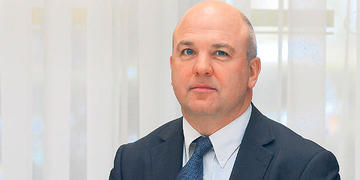
In the Regent's Report 2014 Nils Muižnieks, Council of Europe Commissioner for Human Rights, highlights Eight Steps necessary to preserve press freedom
Although press freedom is an acknowledged human right protected by law, the reality, even in Europe, raises serious concerns about the way states uphold it and journalists use it. Violence, repressive legislation, opaque ownership, and pressures of various natures are all factors undermining press freedom. In addition, unethical and illegal behaviour has caused profound harm to the credibility of the profession, thus limiting its ability to perform its necessary democratic function.
If we want to ensure that the press continues playing its crucial role of democracy watchdog, practical, normative and behavioural changes are necessary:
1- First of all, governments have to break out of the state of denial behind which they hide the problems faced by the press. Acknowledging the critical situation is a precondition for any solution. I also think that reliable information is needed to assess the state of the press and that the establishment of a pan-European network of national observatories on violence against journalists would greatly help moving forward.
2- Another urgent step is to free all journalists imprisoned because of the views they have expressed and to clear the criminal records of those who have been condemned for their reports. This present situation is in fact incompatible with human rights and the rule of law.
3- It is also particularly important to eradicate impunity by effectively investigating all cases of violence against journalists, including those involving state actors such as law enforcement officials. Such a move should be reinforced by specific instructions and training for the police on the protection of journalists.
4- In addition, legislation must change. Defamation and libel must be fully decriminalised and dealt with by proportionate civil sanctions only. Moreover, anti-terror and security laws should not unduly interfere with the right of the press to impart information of public interest and the right of people to receive it.
5- Protection of sources must also be better ensured. Though this is not an absolute right, the ECHR clearly accords ‘the broadest scope of protection’ to the press. Interference with this right must therefore be narrowly defined and ‘justified by an overriding requirement in the public interest’.
6- More efforts have to be made to preserve media diversity and pluralism. This includes providing adequate public resources to support media outlets without compromising editorial independence, and enforcing laws and transparency regulations on media ownership.
7- Political attitudes towards journalists must also change. Policy- and opinion-makers, as well as public personalities, must always condemn violence against journalists and accept a higher degree of public criticism and scrutiny, refraining from violent or intimidating reactions. This is crucial to help the press operate freely.
8- Finally, the press has to do its bit too. It has to ensure accountability and stamp out unethical and illegal journalistic behaviour. If the press wants to remain free and avoid undue state interference, it has to produce the necessary antidote to media abuses itself, in particular concerning hate speech and violation of privacy. To get there, self-regulatory bodies can build on the different codes of conduct established in almost all countries, but also on the case law of the European Court of Human Rights, which establishes that freedom of expression is not an absolute right and comes with limits.
It is dismaying that 21st century Europe still needs such recommendations. However, this deplorable situation should not weaken our determination to defend a free press. By defending journalists’ safety and preserving a free, diverse and responsible press we make democracy stronger.
Link: Regent's Report 2014
Questa pubblicazione è stata prodotta con il contributo dell'Unione Europea. La responsabilità sui contenuti di questa pubblicazione è di Osservatorio Balcani e Caucaso e non riflette in alcun modo l'opinione dell'Unione Europea. Vai alla pagina del progetto Safety Net for European Journalists. A Transnational Support Network for Media Freedom in Italy and South-east Europe.

 Nils Muižnieks' Eight Steps to Preserve Press Freedom
Nils Muižnieks' Eight Steps to Preserve Press Freedom




 Tutti i contenuti disponibili sul sito di Osservatorio Balcani e Caucaso sono distribuiti con licenza
Tutti i contenuti disponibili sul sito di Osservatorio Balcani e Caucaso sono distribuiti con licenza 